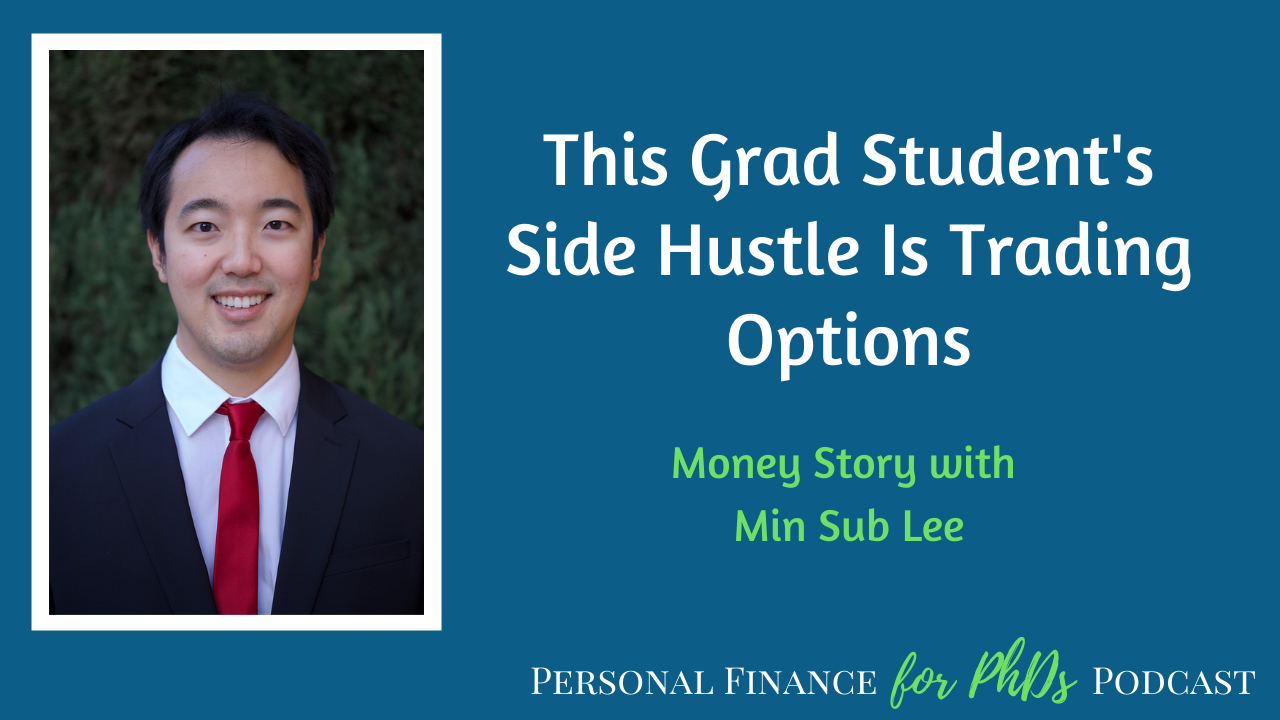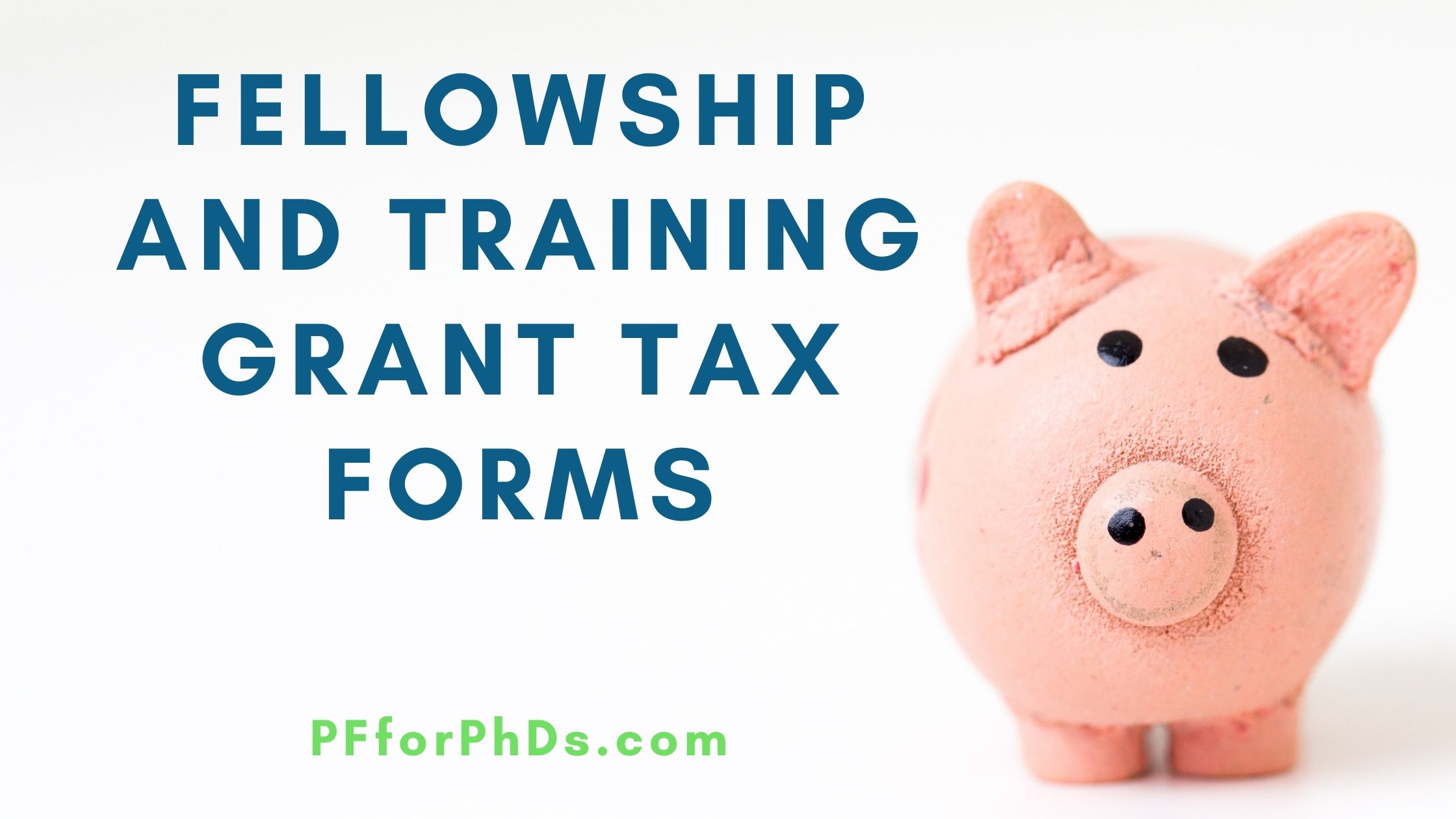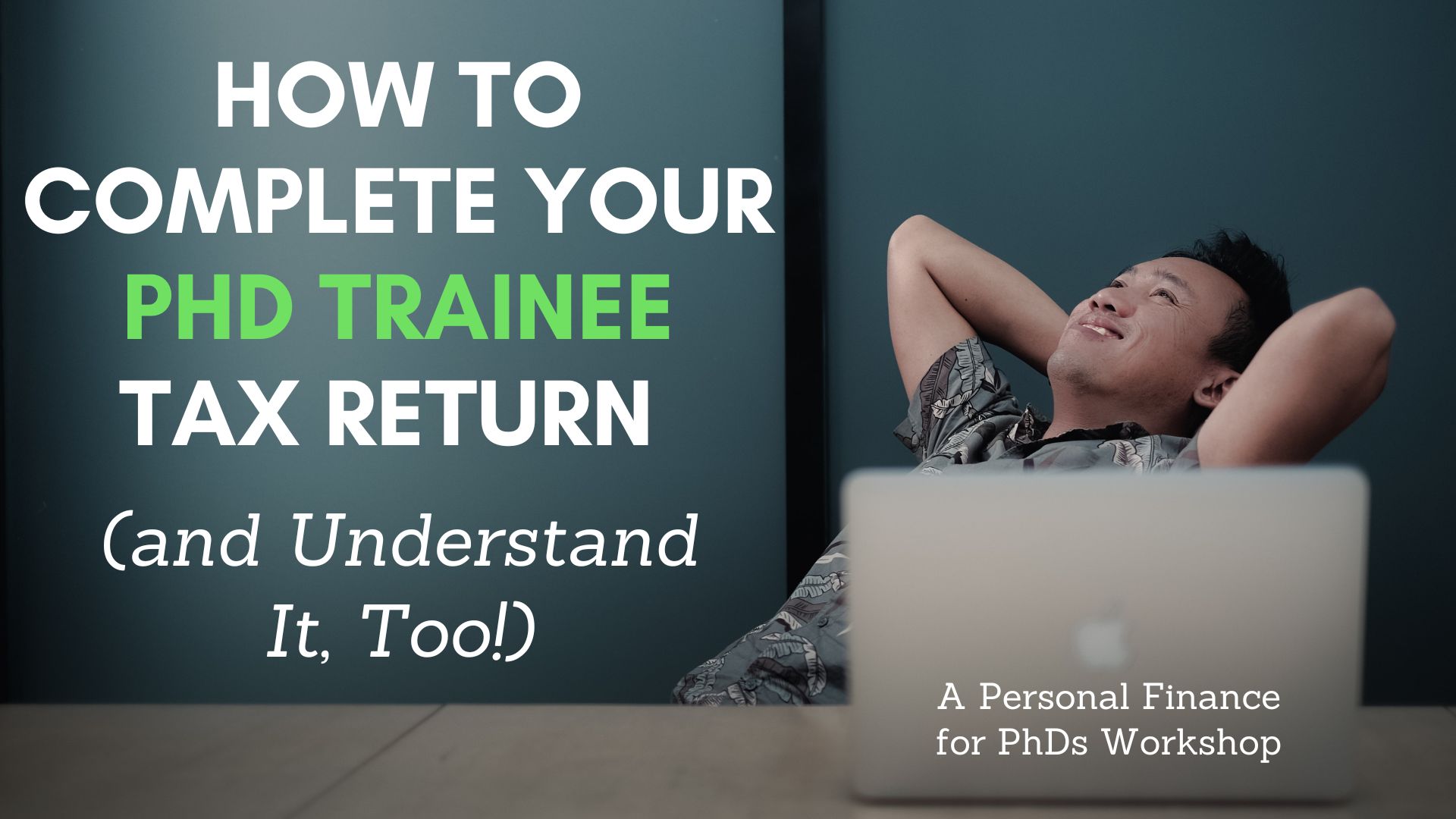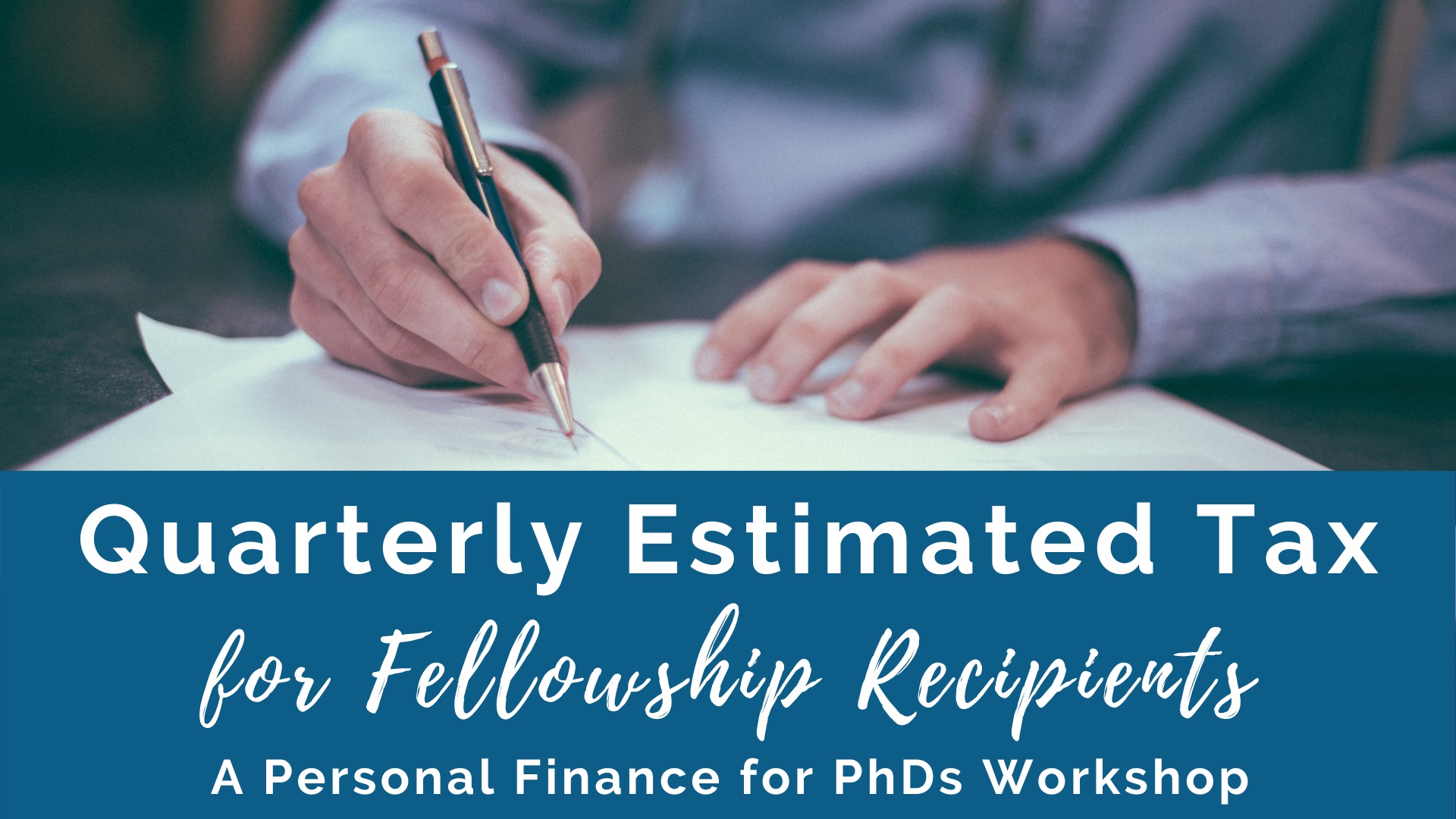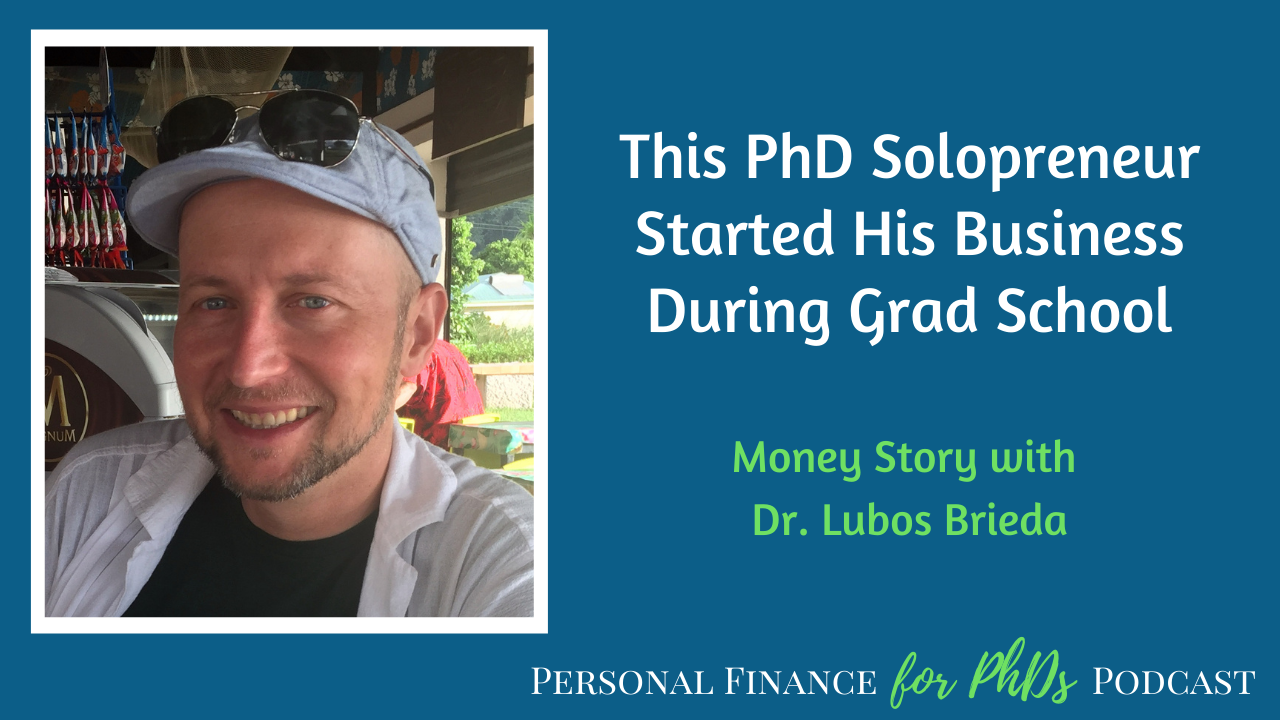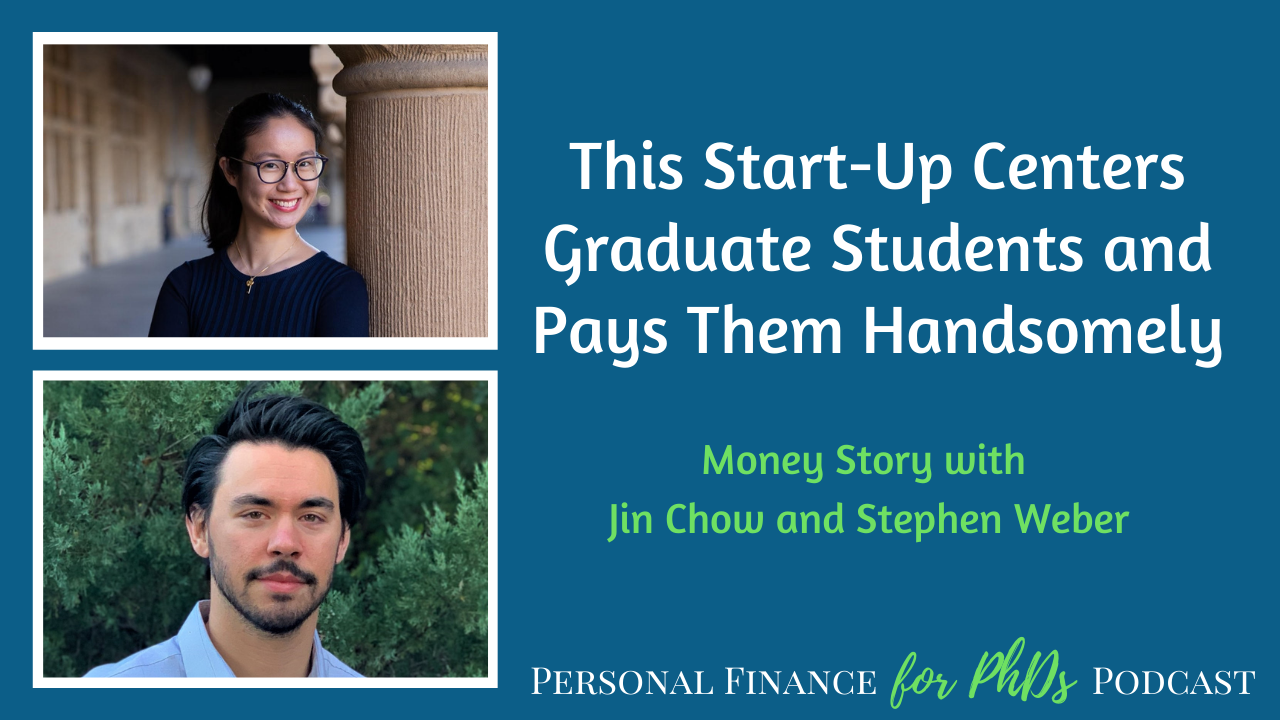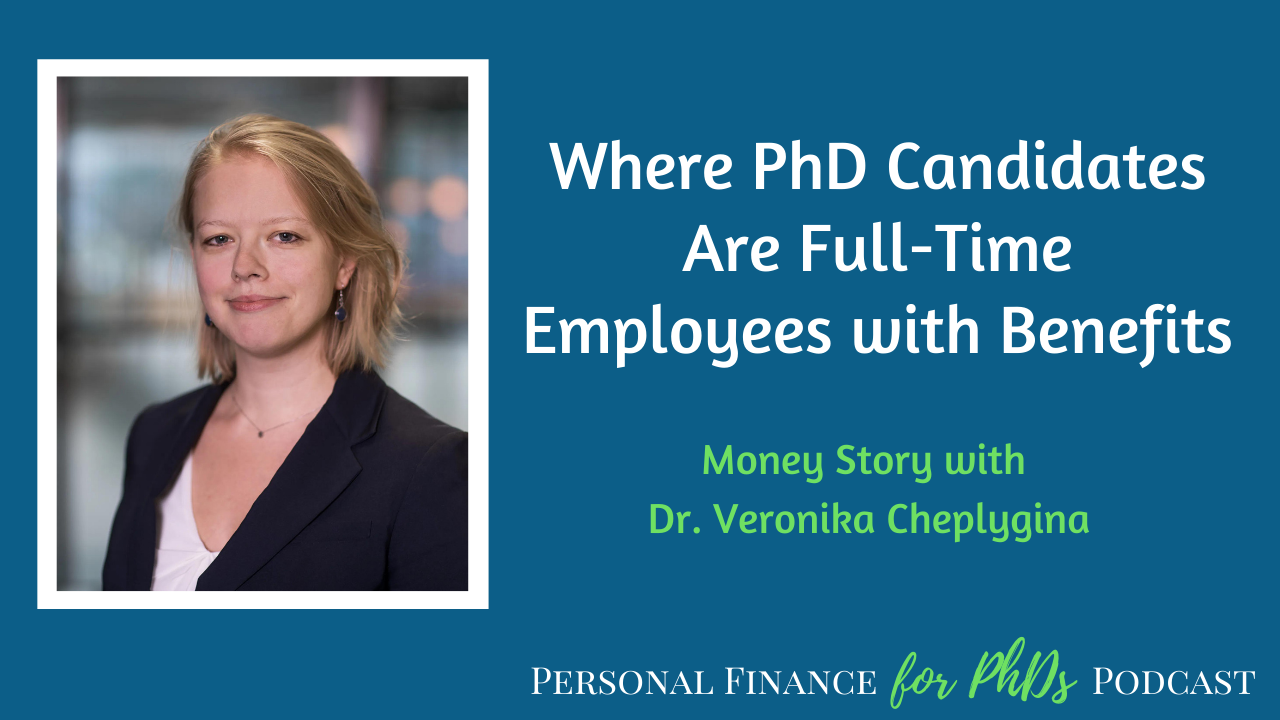In this episode, Emily interviews Natilie Williams, a PhD candidate in communication at the University of Missouri, keynote speaker, and author. Natilie established her business prior to starting her PhD and was up front about it with the director of graduate studies from the beginning, which has been to her benefit. At times, her business has brought in double or more what her assistantship pays, which has been vital for her financial health and security during graduate school. Natilie manages her time and schedule fastidiously using a planner to excel in her graduate program and business.
Links Mentioned in this Episode
- PF for PhDs Subscribe to Mailing List
- PF for PhDs Show Notes for S12E2
- Innerview: Lessons in Leadership (Book by Natalie Williams)
- PF for PhDs Seminars
- Dr. Emily Roberts’ E-mail
- Nat Will, Speak! (Website)
- @NatWillSpeak (Instagram)
- @NatWillSpeak (Twitter)
- PF for PhDs Podcast Hub (Show Notes/Transcripts)
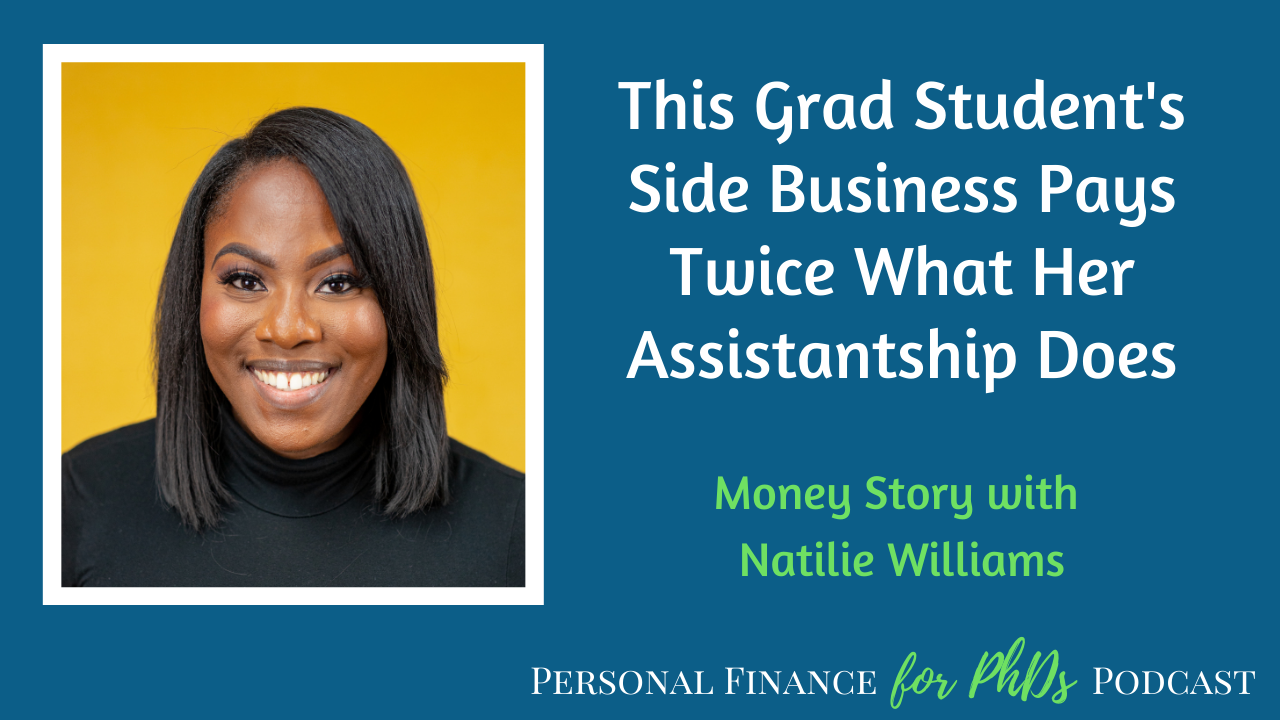
Teaser
00:00 Natilie: I was able to, once you added in book sales, you added in speaking, yeah, I was able, at some point, I made maybe like two and a half times my assistantship, almost three, by being able to do these things and elevate my speaking career. Expand it, so not just speaking, but then also a book.
Introduction
00:25 Emily: Welcome to the Personal Finance for PhDs Podcast: A Higher Education in Personal Finance. I’m your host, Dr. Emily Roberts, a financial educator specializing in early-career PhDs and founder of Personal Finance for PhDs. This podcast is for PhDs and PhDs-to-be who want to explore the hidden curriculum of finances to learn the best practices for money management, career advancement, and advocacy for yourself and others. This is Season 12, Episode 2, and today my guest is Natilie Williams, a PhD candidate in communication at the University of Missouri, keynote speaker, and author. Natilie established her business prior to starting her PhD and was upfront about it with the director of graduate studies from the beginning, which has benefitted her. At times, her business has brought in double or more what her assistantship pays, which has been vital for her financial health and security during graduate school. Don’t miss Natilie’s description of how she manages her time and schedule to excel in her graduate program and business.
01:35 Emily: I have a gift for you if you’re not yet subscribed to the Personal Finance for PhDs mailing list. At the end of every interview, I ask my guest to give their best financial advice for another early-career PhD. My team has collected short summaries of all the answers ever given on the podcast into a document that is updated with each new episode release. The document is even organized by topic so you can easily see which type of advice is most popular. I invite you to join the mailing list to receive access to this document through PFforPhDs.com/advice/. I hope this quick, powerful resource will help you up-level your finances this summer! You can find the show notes for this episode at PFforPhDs.com/s12e2/. Without further ado, here’s my interview with Natilie Williams.
Will You Please Introduce Yourself Further?
02:38 Emily: I am delighted to have joining me on the podcast today, Natilie Williams. She is both a PhD student and a professional public speaker and author. And so I’m really excited to learn how she’s managing her business as well as her career as a graduate student. So Natilie, welcome to the podcast. Thank you so much for volunteering! And would you please tell the listeners a little bit more about yourself?
02:58 Natilie: Absolutely. Thank you so much for having me. I’m super excited. I am a fourth-year doctoral candidate. I’ll actually graduate in just two months, so I’m very excited about that. So, I’ll graduate in two months. I am at the University of Missouri in Columbia, where I am finishing up my PhD in Communication with a focus in Identity and Diversity, and also maintain an assistantship there. I actually recently accepted a professor position in the Midwest. And so I’m really excited about that. And I also have the privilege and the honor to serve as a keynote speaker across the country on student leadership, collegiate success, and academic and professional development. And then that wasn’t enough for me. I also wrote and published a book called Innerview (I N N ER): Lessons in Leadership. And so, really excited about the book. And so, it looks at how we can use moments of reflection in order to enhance ourselves as leaders.
04:00 Emily: Wow. I can already tell, I wish we had another interview to do all these other topics on like, and actually hear from you and your, you know, the main topics that you speak about because that sounds absolutely fascinating. We’re going to keep it more focused on like you as a graduate student and having this business and how you’re doing both of those things at the same time. Hopefully get some good gold nuggets for the listeners who also have businesses that they want to run as well as being graduate students or PhDs. But congratulations on your faculty position! That’s really, really exciting. And yeah.
04:29 Natilie: Thank you.
Getting Into Public Speaking
04:29 Emily: So, that’s awesome. Let’s kind of back up a little bit. And how did you start speaking professionally? Did this come like before graduate school or since you started graduate school? How did you come to that?
04:40 Natilie: Absolutely. So I started speaking professionally about three months after I received my master’s degree. So I had a really mind-blowing experience. I did my master’s thesis on a TV show called A Different World, which was a spinoff of The Cosby show. And it was a very much so like a staple in like the Black community. Like that show ended May of 1993 and it is still talked about now. People still dress up as the characters for Halloween. And so I did my thesis on that show, and I got surprised by The Steve Harvey show with actually meeting the cast because they did a reunion. I talked about my thesis and it was just like this big national, even international thing.
05:20 Natilie: And so where I went for undergrad, Central Michigan University was like, “Hey, we have this freshman orientation leadership program and we want you to come and serve as a keynote speaker. And we want you to talk about your old leadership experience you had on campus as an undergrad. And we know that you just had that really cool experience with A Different World. Do you think you could tie that in as well?” And so, I did it. I keynoted in front of about 300 plus people. And at the end of that keynote, I had lines and lines and lines of students waiting to talk to me afterwards. And that was the moment where I realized it was more than just me being good at speaking, but it was truly a part of my purpose. And then I eventually learned, maybe months after that, the business side of speaking and was able to start it as a business and turn it into a very much so awesome, successful career path.
06:13 Emily: And so, I understand from our prior conversation that you had some years in the workforce between when you finished your master’s and when you started your PhD. So that’s kind of when you were learning, as you said, the business of speaking and growing that part of it. Is that right?
06:27 Natilie: Absolutely. So with the master’s, I was working for a corporate organization part-time and then once I graduated, they actually hired me on full-time. And when they hired me on full-time, I worked there for about two and a half years. So during the time where I started my speaking career, I was working in corporate and I was actually teaching as an adjunct at night because I was still living in the same town where I got my master’s degree from where I also had had an assistantship that paid for my master’s degree. And they were like, Hey, we know you’re still here in town. You did really good work when you were teaching for us. You want to come do it at night? And so I was really able to use my corporate job to fund my speaking career to start funding the business, right? The website, the photoshoot, different things of that nature. And I had my adjunct position as well as some extra savings. And it got to a point where I was working corporate where I was like, I don’t want to do this anymore. I’m not a fan of this position. And I actually realized that I’m a geek. I love to read and write. I want to go back to school and get a PhD and still maintain and enhance my speaking career.
Speaking in the Collegiate Circuit
07:34 Emily: That’s a great thing actually about sort of side hustling or having your own business generally. It can be on the side of different full-time things. You can have transitions in your career and take your business with you as you go through this transition. So that is awesome. And so, your niche about speaking, you said you’re on the collegiate circuit. So do you speak mostly to college students? And you mentioned leadership earlier, like what are kind of the general topics that you speak about? And did it come from that initial engagement or how have you, you know, expanded since then?
08:04 Natilie: So yeah, it’s come from the initial engagement. It’s also come from my own collegiate experience that has really propelled me as a leader and have taken advantage of opportunities and so, and networking. So like mentorship, relationship building, leadership despite trauma, Greek leadership, Black and multicultural Greek leadership, first-year experience. So how do you even plan out your college career? Whereas you can take over the campus, what are some resources and opportunities that you should take advantage of as a college student? So studying abroad, pre-professional programs, networking with professors, and things of that sort. So those include some of the speaking topics, professional development, preparing yourself for your career path. What can you do in college to prepare you for post-graduation? So those are some of the speaking topics. And it’s on the collegiate circuit as well, but I also am starting to do more stuff with high schools and middle schools as well, including like that social and emotional learning component to leadership. So, it’s starting to expand greatly.
Time Management as a Grad Student and Business Owner
09:12 Emily: That’s awesome! Now I want to hear about you as a graduate student, and also as a business owner. And since you started the business back when you had a full-time job and another part-time job, you probably took some lessons from that in terms of time management and so forth. But I’d love to hear about how you’re applying them now as a graduate student. Like, how are you managing your time and your energy to make sure that you’re doing both these things well?
09:35 Natilie: Absolutely. So I believe it’s time management and also time prioritization and time stewardship. And so figuring out what’s important right now and how much time do I need to allocate to it. But for me, coming in as a graduate student, working on a PhD was really new to me because I had never done that before of course. And so my first thing was, I need to understand what’s the lay of the land. How much time do I need to dedicate to this because it was in-person and it was full-time? And so for me, I really had to figure out what I didn’t know. And I looked to upperclassmen to see how much time are you all spending on readings and coursework? What’s the writing load like? And so I actually sort of, kind of, when I first started the doctoral program, I took very few speaking engagements that first semester, because I was like, I need to focus on this program.
10:31 Natilie: And once I learned that I could balance my coursework and my speaking career, it was all she wrote after that. So it would get to a point where I knew my schedule perfectly. I knew when I had to teach. I knew when I didn’t have to teach. I knew how long it would take me to get to the nearest airport. So I was about two hours from the nearest airport and it would be sometimes I would literally get done with class as a doctoral student. I would have my suitcase packed in my car. I would drive two hours to the airport. I would fly out to go speak. That same day, when I got done off the stage speaking, I would fly right back, finish work as a doctoral student, maybe teach that morning as my assistantship, and I would do it all over again. So I really learned my schedule perfectly. And I would do my papers sometimes on the airplane, do my class readings in the back of the Uber as I was going to my hotel to speak. I would sometimes get to my hotel the night before, so I could do my coursework. And so I really got the timing down perfectly, and I always keep a planner with me. So I knew due dates for assignments as an instructor, and due dates for assignments as a graduate student as well.
Schedule Flexibility
11:47 Emily: I’m not that familiar with like your field. So like, what is the nature of the research that you’re doing? Like is a lot of thinking and writing and reading? Or do you have to like, be certain places aside from like the teaching component? Like, do you have to be certain places at certain times? Like how flexible is your schedule, I guess?
12:02 Natilie: Very flexible schedule. So, as a doctoral student, I study communication. Specifically, I’m more of an interpersonal and family communication scholar. Specifically, I look at what’s called voluntary care relationships. And so those are relationships that have no biological tie, but because we say they’re family, they’re family. So your best friend that you consider your sister friend or your childhood nextdoor neighbor that you may have considered your cousin growing up because you all have known each other for the past 20 years. Godparents and things like that. And so I look at that, but specifically within the context of Black families and Black people and the validation process of those relationships, the impact of them, and the benefits. And so, I’m also a qualitative scholar. So I spend the time interviewing people and things of that sort. So that’s my research interest. And when you’re doing the interviews, you can, you know, do them over the phone and things like that. So, I had a lot of flexibility except for the fact that my coursework was in person. So I just, I knew how much time I had to drive to the airport right after class. I knew how much time I had to board the airplane. So I really just really got it down to a science.
13:16 Emily: That’s amazing. I don’t <laugh>, I don’t think I’ve ever gotten near that degree of specificity with like my time blocking practice. But it’s because I have much fewer, I think, constraints on my life, especially prior to becoming like a parent. Like once you have like that the parenthood stuff going on, I know it’s like a thing that’s said like, you know, mothers become like the most efficient workers you’ve ever seen because they have like, so limited time to like, do their work and then they have to do these other things. So like, but even that, like, I’m not to the degree that you just described, like time blocking. So I really like admire that. It sounds like an amazing skill to have.
Speaking Engagements During COVID
13:53 Emily: And how, like, during this time that you’ve been a PhD student, you know, you mentioned that you took very few speaking engagements at first when you were kind of getting the lay of the land. But then how has your business grown over the past few years? And I’m especially wondering how things have changed with COVID, because you just mentioned you were doing in person speaking. I assume that at least changed for some amount of time for a while. So how have things been going, you know, since starting your PhD?
14:15 Natilie: So as soon as I got the understanding of my schedule and the timing, I hopped right back on that road and it, I just, I knew if I had class, if I didn’t have to teach or my own classes on a Thursday or a Friday, I knew Wednesday night I could go fly out and come right back. And so I started to just be intentional about the different conferences I would present at, in front of students. But then also too, with the decision-makers present, understanding how many decision-makers will be present during that networking piece. And that networking piece, allowing decision-makers to meet me, sit in on my sessions, get to learn more about the learning objectives with my presentations, whether it was a workshop or a keynote, that really allowed me the opportunity to continuously to grow on the speaking circuit.
15:02 Natilie: And with the topics that I speak about, leadership and student leadership on the collegiate market, it’s not as many young black women doing what I’m doing. And so, I’m standing out, right? And I’m doing very well with speaking as far as the mechanics of it. And I was able to and still am able to get my name out there. And so that allowed me to grow my speaking engagements. And you also mentioned about COVID. Well, when COVID hit, I was in my mind, I first thought that this was literally the end of my speaking career. And I said, well, you know what? I had a great run. I did a great job. If that’s it, I went out with a bang. And I actually saw my business boom, shortly after. Like months after. And my mind was blown. I’m like, wait a minute. But I realized that these schools were like, we still need people to encourage our students.
15:53 Natilie: We still need people to give our students the how to. It’s now a virtual space. And so I was able to sometimes do two engagements in one day I could do one in California, one in Florida virtually and not have to leave and not have to also invest in travel expenses. And so, 2021 was probably one of my most profitable speaking years yet. And I think this year is probably on top to beat that. It’s definitely on top to beat that. And so, yeah, I was completely blown away by it, completely blown away. And once I finished coursework for my PhD, it was <laugh>, it was all she wrote. I was able to do a lot more. So I didn’t have to be in the classroom as a student. I just had to teach. And so I was able to have even more free time to get out there and to maximize my opportunities to get in front of my target audience.
16:47 Emily: Yeah. I’m so glad that your business has grown through COVID as well. I’ve observed the same thing. My client base has expanded. It’s so much easier to set up speaking engagements without having to do all the logistics of the travel. And you know, my schedule’s a lot more open, as you were saying, because the travel’s not there. So I’m free to accept engagements that are closer in time together than they used to be. And it’s been strange because I had the same reaction like, oh I can’t travel anymore. I’ve got to pivot. <Laugh> like, what else can I do in this business aside from speaking, because I’m clearly not going to make money from speaking anymore. No, that was not at all the case. Once people kind of got their bearings, the bookings started coming in again. So it’s really been like amazing and I’m so grateful, and grateful that it’s happened the same way for you.
17:27 Natilie: Thank you!
Commercial
17:30 Emily: Emily here for a brief interlude. Would you like to learn directly from me on a personal finance topic, such as goal-setting, investing, frugality, increasing income, or student loans, each tailored specifically for graduate students and postdocs? I offer seminars and workshops on these topics and more in a variety of formats, and I’m now booking for the 2022-2023 academic year. If you would like to bring my content to your institution, would you please recommend me as a speaker to your university, graduate school, graduate student association, or postdoc office? My seminars are usually slated as professional development or personal wellness. Ask the potential host to go to PFforPhDs.com/speaking/ or simply email me at [email protected] to start the process. I really appreciate these recommendations, which are the best way for me to start a conversation with a potential host. The paid work I do with universities and institutions enables me to keep producing this podcast and all my other free resources. Thank you in advance if you decide to issue a recommendation! Now back to our interview.
Business Income vs. Stipend
18:52 Emily: Let’s talk about money. So, you have an assistantship. I don’t know if you want to share how much you make through that. Feel free if you’re comfortable. But how does your, like the money that comes in through your business compare with like your stipend?
19:05 Natilie: Yeah, so with an assistantship so Hey, when I left corporate, I left corporate, I quit the job. I had saved up $15,000 over the timeframe that I had worked there. Especially when I knew I wanted to leave. I was like, well, I’m no fool. I need to, you know, I need to be able to live. And so I saved up $15,000 and then I got this assistantship. And this assistantship was paying me literally a third, one-third of what I made in corporate. And for me I’m like, I will figure it out. Like that’s one promise I’ve made to myself is that I will always be okay financially. Legally, financially, correct? And so yeah, so with the assistantship I was making like a third of what I made in corporate.
19:50 Natilie: And with speaking, I was able to, there were some times where I was literally making whatever my assistantship was, I could make double that with speaking. So I was literally making double my assistantship with speaking and still had my assistantship. And so for me that allowed me to realize like, okay, I can do both of these things well, and I’ve always been a saver and I knew that I would need, you know, I would need to live after I graduated. So I was able to prepare for life post-Graduation. And then also writing a book while I was in the doctoral program and releasing the book and also having book sales come in. So, I was able to, once you added in book sales, you added in speaking, yeah, I was able, at some point I made maybe like two and a half times my citizenship, almost three, by being able to do these things and elevate my speaking career. Expand it, so not just speaking, but then also a book. And so, yeah.
20:54 Emily: It sounds to me like, you know, going into your PhD program, it was never like a question that you would give up the speaking. Like, it’s part of your career now. But I’m just wondering like, had you come into graduate school and not had a side business, is your stipend even enough to live on? Like, are your peers living on it? Or do they all have like side stuff going on or taking out student loans or depending on family members? Or like what’s going on financially in your program, I guess?
Transparency with the Department
21:19 Natilie: Yeah. Most of them, they definitely, they hustle. When I say hustle, I don’t mean it in a bad way. But they’ll take another job. They’ll teach somewhere else. They will, some of them have maybe like a significant other, so they’re able like to split costs. But for the most part, we definitely, as part of our program, we look for other ways to bring in that additional income. And so for me, I came in as a speaker and I made sure that that was something I promised myself that I would not give up, but I wasn’t sure how the department was going to react or respond to it. Because I never wanted them to think that like I was not focused on the program. And I listened to one of your previous episodes where you were talking about that, where it’s frowned upon sometimes.
22:07 Natilie: And so, I came into the department and told the Director of Grad Studies for the department, like, Hey, I do speaking. And so there would be some Fridays where they would have, what’s called colloquium where like, it’s like a big research conversation. And I’m like, yo, I’ve got to go Denver to speak. I can’t make it to colloquium. And luckily the Director of Grad Studies was like, you know, I’m going to count you speaking as professional development since you already have your hand in your career. We’re not going to count it against you, that you aren’t at colloquium, right? Like you already have your hand in your career. We’re going to support that. And I was so happy that she was so generous because she could have been like, no, you need to be here. I can say for like some of the rest of the department more so like peers, I didn’t really let them know too much.
22:56 Natilie: I would just say like, oh, I have a leadership conference to go to. I didn’t mention to my peers that I was the keynote for the leadership conference. But once I saw that it was a comfortable space, I was able to let them know. And then once they saw that like I wrote a book and so they were like, oh, wait a minute, you really do this. Like you wrote a book like you are on a book tour, wait a minute. Like, you know, so once I felt comfortable, I didn’t mind sharing. But I had to be sure that it was a safe space because I was not going to allow anybody to sabotage this career that I had worked so hard for.
23:28 Emily: Yeah. I think this makes a ton of sense because when you have a business, a side business or whatever you might call it, that’s so like out there and public-facing, and especially it’s in higher ed <laugh> as well. Like, it’s something that’s probably impossible to conceal. Like sometimes with my podcast guests, they don’t want to let people know about it, and they can not let people know about it. They can do their side hustle on the weekends, in the evenings. It can be just a private thing. But I think it was really smart of you since you were already doing it when you came into graduate school just to be completely upfront and say, this is what’s happening. And I’m really glad too, that, you know, they worked with you on that. It also makes sense to me that what you’re doing is professional development enhancing your career. So, I’m really glad they gave you that, you know, a little bit of leeway on the attendance.
24:11 Natilie: It was difficult. Because it got to the point where like, I was so protective of my speaking career. Like I was not accepting my colleagues on social media because I didn’t want them to see that, like, you know, I’m speaking. Or if after class, as a student, I go hop on a flight to the airport and I post on social media that I’m on a flight and they’re like, oh, well, what is she doing there? Is she going to make it back in time to teach? And I would, but I never wanted people to question. I never wanted people even to have the opportunity to try and, you know, speak against or speak negatively or try to talk about what they didn’t have clarity on, you know, so. But now it’s all good.
Advice for Working on a Business in Grad School
24:47 Emily: Yeah. You proved yourself in your program and it came out that you were doing all of that with the business on the side, and being successful in both. So yeah, I’m really glad that you had that positive reaction. Is there anything else that you want to share with us about your business or your role as a graduate student before we wrap up?
25:03 Natilie: Absolutely. As a graduate student, if you come in with a business, you don’t necessarily have to lay it down by the wayside in order to focus on your doctoral studies. You can do both and you can do both well. I think it’s about coming into a department and figuring out how does this operate? And then also allowing yourself to have as much time as possible to work on your business and still be a person because doctoral programs are hard for no reason. But it’s possible to maintain both of those things. And if you are like, well, I’m a doctoral student and I want to start a business but I don’t know. Try and think about what skillset do you have that you can actually monetize, and that you can do it in a way in which you’ll have time to dedicate to it. Because you don’t want to start a business and you can’t serve your customers well. So I could not show up to my speaking engagements half-tired because I had a paper due last night that was 15, 20 pages, you know? So being able to still serve your customers in whatever capacity that you serve and try and figure out how you can monetize your skillset and do a ton of research, right? If you are interested in speaking, you can look up other speakers that may be doctoral students and figure out how did they do it. So, you never have to recreate the wheel.
How to Reach Natilie
26:22 Emily: How can the listeners find you if they want to learn more about your career or anything else?
26:27 Natilie: Absolutely. I would love for your listeners to follow me on social media and let me know that they found me from the podcast. And so, I can be found on Instagram @NatWillSpeak N A T W I L L S P E A K. And so that is @NatWillSpeak on Instagram, on Twitter, on Facebook. My website, www.natwillspeak.com. And I’m available if you know, they ever want just drop in and say, hi. And my book Innerview, I N N ER, Lessons in Leadership is available on my website, NatWillSpeak.com, and it’s also available on Amazon. And I really kind of lay out even more in the book of how I was able to start the speaking career and elevate it.
27:13 Emily: Yeah. Fascinating. I love that URL slash handle. Your name lent itself so well, that’s amazing.
27:18 Natilie: Thank you. <Laugh>.
Best Financial Advice for Another Early-Career PhD
27:20 Emily: So, the question that I ask all of my interviewees before we wrap up is what is your best financial advice for another early-career PhD? And it could be something that we’ve already touched on in the interview, or it could be something completely new.
27:33 Natilie: Know what you have coming in financially, know what you have going out paying bills. And you can do that for as in a budget. Budget, your money, so, you know, again, what you have due every month, what you have coming in, and that will really allow you to take more ownership of your finances to say, Hey, I realized that I have $800 leftover every month. I’m doing pretty good. I can start saving or investing. Or it may make you realize I need $800 more a month. I don’t have enough. Do I need to pick up another position? Do I need to try and apply for a fellowship or a scholarship or outside grants or things of that nature? So, I think that me budgeting, learning to budget my money, I budget down to the dollar. Not to the cents, but to the dollar, and me doing that, I was able to take ownership of my finances and know at all times where I stood. And checking bank accounts daily, making sure that, you know, what’s what, did this bill get taken out? So just knowing where I always stood financially gave me the knowledge to make the best-informed decisions financially as a doctoral student.
28:38 Emily: Well, Natilie, it’s been such a pleasure to meet you and thank you so much for sharing your experience and everything with the listeners! Thanks for coming on!
28:45 Natilie: Thank you so much! Thank you!
Outtro
28:52 Emily: Listeners, thank you for joining me for this episode! I have a gift for you! You know that final question I ask of all my guests regarding their best financial advice? I have collected short summaries of all the answers ever given on the podcast into a document that is updated with each new episode release. You can gain access to it by registering for my mailing list at PFforPhDs.com/advice/. Would you like to access transcripts or videos of each episode? I link the show notes for each episode from PFforPhDs.com/podcast/. See you in the next episode, and remember: You don’t have to have a PhD to succeed with personal finance… but it helps! The music is “Stages of Awakening” by Podington Bear from the Free Music Archive and is shared under CC by NC. Podcast editing by Lourdes Bobbio and show notes creation by Meryem Ok.
